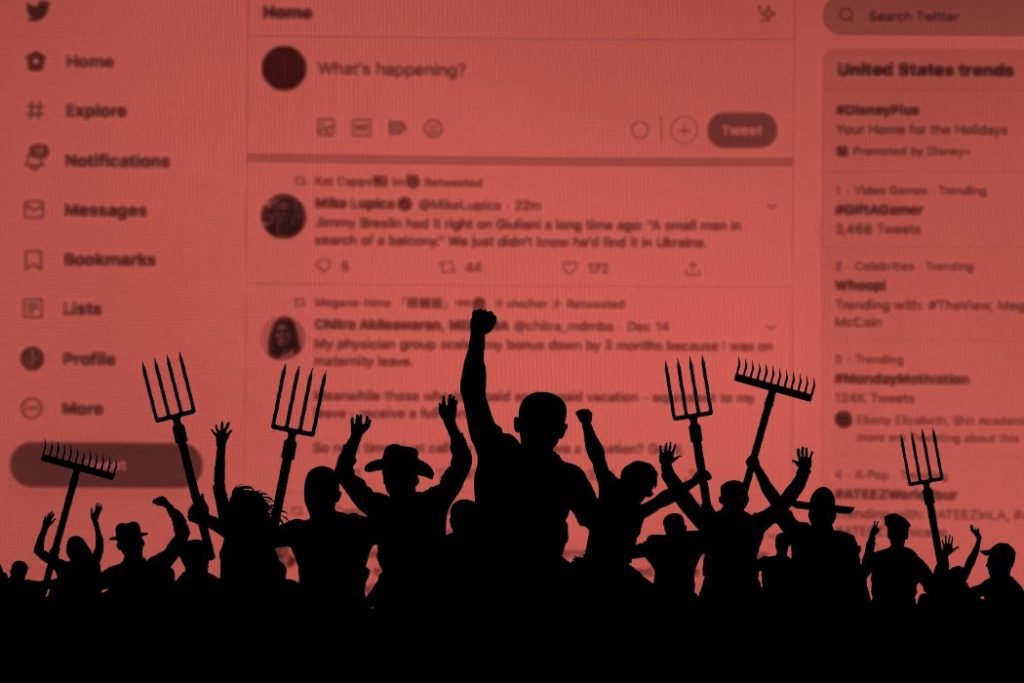Cancel Culture is Not (Always) a Bad Thing

Image courtesy of Getty/Jonathan Aprea
By Margaret Adams
Within the past few weeks, the topic of cancel culture and its drastic effects has become one of relevance. Specifically, many people believe that content creators, like David Dobrik, have time and time again been held to the “impossible” standards of the Internet. The question is not whether those standards are too high, but if we can hold celebrities accountable appropriately.
“Cancel culture,” as defined by Merriam Webster, is a culture characterized by “the removing of support for public figures in response to their objectionable behavior or opinions. This can include boycotts or refusal to promote their work.”
Cancel culture has manifested in many different ways throughout the last couple of months: whether it be the downfall of Bon Appétit magazine, Ellen Degeneres, or something as serious as sexual assault allegations against many male celebrities, the Internet has seen multiple cancellings for many different reasons and varying degrees of severity.
Some people have expressed incredible disdain for the rise of cancel culture, citing its destructive nature, promotion of erasure, and cyberbullying.
Others venture to argue that cancel culture does not exist – people like Louis C.K., who was cancelled for multiple assault allegations, and Thomas Middleditch, who is currently under fire for multiple allegations as well, both still have successful stand-up specials on Netflix.
Jonah Engel Bromwich of the New York Times writes “the word echoes the trend of on-demand subscriptions of content, from which a user can opt out just as easily as they opt in.”
The problems with cancel culture enter when people start equating words with actions; there are some people who have gotten more backlash from political commentary on Twitter than others have gotten from sexual assault allegations. The context of the situation is always important.
Internet fame is a whole new ballgame: the audience decides who to give ratings to, who can go viral, who gets to represent the generation controlling the Internet. On this account, we are the ones who put people on the pedestal and then knock them down. In this realm of cancel-culture, there are two current predicaments that are different in almost every way; Charli D’Amelio and David Dobrik.
Charli D’Amelio is the Internet’s most popular teen girl who rose to fame on TikTok, amassing over 112 million followers and over 9 billion likes. She was “cancelled” earlier this year when she and her sister, Dixie, were rude to a highly-decorated guest chef who had made paella, a snail dish, for their family. Charli lost 1 million followers and received countless backlash from the Internet, calling her spoiled, ignorant, and a brat.
More recently, David Dobrik came under fire for multiple videos that convey a power struggle between him and the people he vlogs, using money and his powerful position on the Internet to persuade people to do embarrassing and degrading things for his vlogs. Dobrik started his Youtube career in 2015 and had since created one of the most successful accounts on the platform; with 18.8 million subscribers and many appearances in mainstream media, he and his entourage have been making vlogs that illustrate the wildest of pranks and most politically-incorrect of jokes.
The issue with Dobrik’s vlogs is the clear power struggle between him, the director, and the people he films; they become faced with an opportunity to be exposed in the vlog, but at their own expense. An example of this is when Dobrik tricked a former friend, Seth Francois into kissing another older friend, Jason Nash, twice.
“Allegations are when there’s a lack of proof, but in my case it’s blatant. The point of the video is to sexually assault me,” said Francois to Buzzfeed News. “That’s the whole premise. I told [Dobrik] how I felt about it three years later after [he] monetized it.”
Dobrik also released a vlog in which he and his friends got a group of under-age girls drunk, and then showed commentary of the friend-group joking about group sex. It was later revealed that one of the girls was sexually assaulted that night by a member of the friend group, Dom Zeglaitis.
Dobrik used his wealth and power to create an environment in which vulnerable people were teased with exposure and “clout” for his vlogs to get views; ultimately, the girl who was assaulted is suffering the most. He lost less subscribers than D’Amelio did.
Clearly the two examples of “cancel culture” at work are not similar, but both creators got very similar backlashes from online audiences; articles were both written about them, both of them trended on Twitter for a week, and both lost brand deals and subscribers. Is it fair that D’Amelio got the same punishment for being impolite that Dobrik received for creating and facilitating an environment of power abuse and crime on the Internet for thousands of young viewers?
No, it’s not.
We finally live in a world in which platforms exist so that people of all backgrounds can have a voice; “cancel culture” ultimately stems from online audiences having this newfound power to control who gets fame and who doesn’t.
Holding the people in society we revere to a high standard is not a bad thing, but equating generally immature behavior with actual crimes can prove to be destructive, and promotes the idea of perfectionism.
At the end of the day, it’s the people who participate in social media that are the judges. Cancel culture does a nice job of illustrating that talent and power are not synonymous with character. Paying attention to the people we make famous, as well as their words and actions, is ultimately a net positive.





